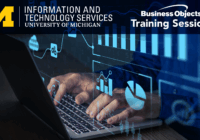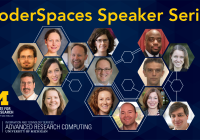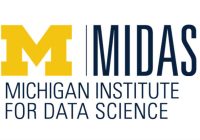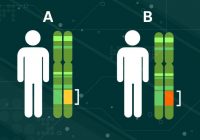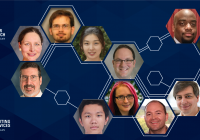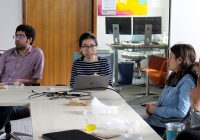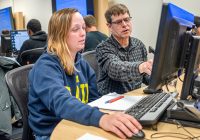Tag Archives: data science
New network for data analysts working in mobile health
U-M partners with Google to offer job-ready tech skills program
A new flexible online training program on data science will prepare job-seekers in Michigan and beyond to quickly enter one of the fastest-growing labor markets and advance their careers. The Center for Academic Innovation created the program, “Data Analytics in the Public Sector with R,” for data science and other professionals interested in how public data sets can drive decisions and policymaking in the public sector.
Speaker series highlights programming tools, resources
All members of the U-M community are invited to join the CoderSpaces hosts during the month of November as they share their expertise! The presenting hosts are a team of ITS Advanced Research Computing (ARC) and Consulting for Statistics, Computing & Analytics Research (CSCAR) consultants, faculty and post-docs, as well as research support staff originating from different research… Read More »
AIM Data Showcase – A month of data events
Data for Public Good Symposium, Feb. 25
As a community who supports data intensive research, you know that how we interact with data is ever evolving. Now, more than ever, data for good represents a diverse and interdisciplinary effort to engage, educate, and empower the world around us. Statistics in the Community (STATCOM), the Center for Education Design, Evaluation, and Research (CEDER), and the Community… Read More »
Democratizing genetic data for cancer research
By distilling information from hundreds of data sources, U-M Precision Health researchers have launched an open-access, online repository called Cancer PRSWeb that will help accelerate advancements in cancer prevention and prediction. The researchers created polygenic risk scores (PRS) for 35 cancer traits and then evaluated the scores using electronic health record data from the Michigan Genomics Initiative and the… Read More »
U-M Data Science Annual Symposium covers wide range of topics
The Michigan Institute for Data Science held its Data Science Annual Symposium Tuesday, November 10 and Wednesday, November 11. The keynote featured Lauren Klein, English professor at Emory University, and Catherine D’Ignazio, urban science professor at the Massachusetts Institute of Technology. The pair discussed their book, “Data Feminism,” published last February. Klein and D’Ignazio introduced what they call the… Read More »
Join weekly CoderSpaces to get research compute support
If you are grappling with a piece of code, trying to compute on a cluster, or just getting started with a new method such as machine learning, CoderSpaces can help. All members of the U-M community are invited to join the weekly virtual CoderSpaces starting Monday, November 3, 2020, to get research support and connect with others. The… Read More »
Workshop: The state-of-the-art in automated and semi-automated video coding
Video is being acquired at an alarming rate across domains, including social research, healthcare, entertainment, sporting and more. The ability to code this video—attribute certain properties, labels, and other annotations—in support of analytical domain-relevant questions is critical; otherwise, human coding is required. Human coding, however, is laborious, expensive, not repeatable, and, worse, often error prone. Video coding, an… Read More »
UMSI researchers awarded COVID-19 data science grant to study student mobility patterns
The Michigan Institute of Data Science (MIDAS) recently awarded three University of Michigan School of Information (UMSI) researchers COVID-19 data science grants. Research fellow Quan Nguyen, assistant professor Christopher Brooks and assistant professor Daniel Romero will receive funding for “Students’ mobility patterns on campus and the implications for the recovery of campus activities post-pandemic.” This project will examine… Read More »
Watch: How predictive modeling could help us reopen more safely
Increasingly specific social distancing questions are weighing on states and municipalities as they inch toward relaxing COVID-19 restrictions. Now, a team of computer science and medical researchers based at U-M is working on a tool that could provide more precise answers. The team is mashing up census data, virus transmission rates, and decades of social science research to… Read More »
Digitizing and transforming mobility systems
In June 2018, the World Economic Forum chose the Detroit region to pilot the concepts behind the integration of disparate mobility modes. MIDAS affiliated faculty, Danai Koutra and Aditi Misra, and fellow, Arya Farahi, made significant contributions to the forum’s recent publication “Digitizing and Transforming Mobility Systems: Lessons from the Detroit Region.” Beyond all else, the pilot demonstrated… Read More »
Building better coronavirus databases with automatic quality checks
Amid a growing coronavirus crisis, experts in all fields have begun compiling massive datasets to track the impact of the contagion. To make constructing these datasets as accurate and timely as possible, Michael Cafarella, professor of computer science and engineering, is leading an NSF-funded project that will build high-quality auxiliary datasets to enable automatic quality checking and fraud… Read More »
How quickly does coronavirus spread? A U-M data science fellow works to answer the question.
As the novel coronavirus (COVID-19) advances around the world, a growing number of researchers are using computational models to estimate this spread. Among the first to publish on the subject is a team of Hong Kong- and China-based researchers that includes University of Michigan Institute for Data Science (MIDAS) research fellow Qianying Lin. For the past several weeks,… Read More »
New programs in data science & analytics at UM-Flint offer innovative career pathways
UM-Flint is poised to help more students to succeed in big data with the introduction of three new programs in data science and analytics offered across three departments and at the undergraduate and graduate levels: B.S. in Mathematics with a concentration in Data Science B.S. in Economics with a concentration in Data Analytics Graduate Certificate in Data Sciences… Read More »
MIDAS Reproducibility Challenge
The first of its kind at U-M, the MIDAS Reproducibility Challenge aims to highlight high-quality, reproducible work at U-M by collecting examples of best practices across diverse fields. There will be a prize pool of up to $15,000 cash award for the winning teams. Besides incentivizing reproducible workflows and enabling a deeper understanding of issues of reproducibility, the… Read More »
First-ever Women+ Data Science Symposium
The very first Women+ Data Science Symposium will be held April 17, 2020. All practicing and aspiring data scientists, but especially women and gender minority participants, are invited to discuss cutting-edge research, explore resources for research and career advancement, and network with other attendees. You are encouraged to submit your idea for a talk or poster! Especially in… Read More »
CoderSpaces are weekly data science hubs
Do you write code for research or class? Do you sometimes get stuck? Are you just starting to learn how to code? Hosted by members of the U-M community, CoderSpaces are there for you to meet other coders and learn from your coder peers. Participation is open to anyone interested in writing code for computational social science, data… Read More »
MIDAS announces PODS Grant winners
The Michigan Institute for Data Science (MIDAS) recently announced the awardees of its first round of Propelling Original Data Science (PODS) Grants. Fifteen interdisciplinary teams will receive over $1 million in combined funding support for an array of exciting projects with data science as the common thread. The projects range from detecting patterns of illicit wildlife trade networks, to… Read More »

